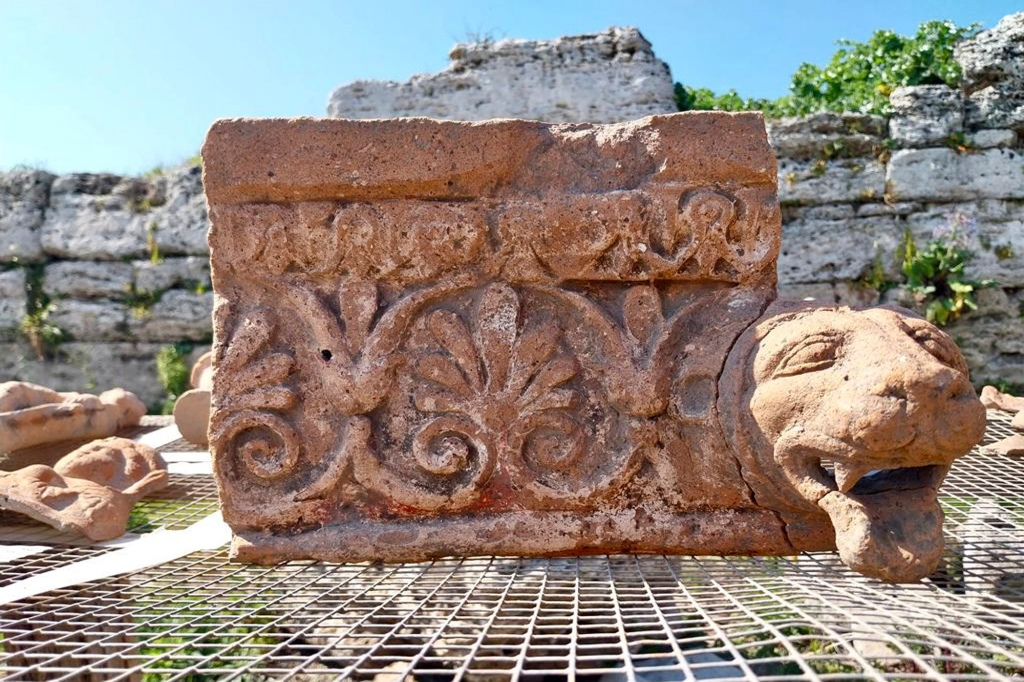Archeologists in Italy unearth ancient dolphin statuette
Excavations in southern Italy have unearthed terracotta bullheads and a figurine of the Greek god Eros riding a dolphin, shining new light on the religious life and rituals of an ancient city, culture ministry officials said Saturday.
It’s the first trove of artifacts identified from a sanctuary in the ancient Greek city of Paestum, which dates from the 5th century B.C. Paestum, famed for its three massive Doric-columned temples, is near the archaeological site of Pompeii, but farther down the Almalfi coast.
The small temple was first identified in 2019 along the ancient city walls but excavations were halted due to the COVID-19 pandemic, the Italian Culture Ministry said in a statement.
Excavations yielded several small terracotta figurines in the first months of resuming work, the Ministry said.
Archeologists found seven bull heads found around a temple altar as if placed there on the ground in a form of devotion.

A dolphin statuette found in the first trove of artifacts appears to be from the Avili family of ceramists whose presence had never before been documented in Paestum, the statement said.
Limited excavations began at the temples in the 1950s, and the ministry believes more treasures can be found in the area.
Ancient Romans controlled the city by around 275 B.C., renaming it Paestum from the Greek “Poseidonia,” in what had before been Magna Graecia.
Read the full article Here


